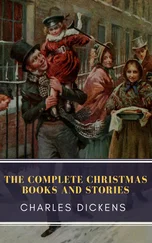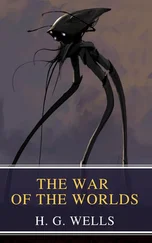What need the bridge much broader than the flood?
The fairest grant is the necessity.
Look what will serve is fit: ’tis once, thou lovest,
And I will fit thee with the remedy.
I know we shall have revelling to-night;
I will assume thy part in some disguise,
And tell fair Hero I am Claudio,
And in her bosom I’ll unclasp my heart,
And take her hearing prisoner with the force
And strong encounter of my amorous tale;
Then after to her father will I break,
And the conclusion is, she shall be thine.
In practice let us put it presently.
Exeunt.
¶
Enter Leonato and an old man [Antonio], brother to Leonato, [meeting].
Leon. How now, brother, where is my cousin, your son? Hath he provided this music?
Ant. He is very busy about it. But, brother, I can tell you strange news that you yet dreamt not of.
Leon. Are they good?
Ant. As the [event] stamps them, but they have a good cover; they show well outward. The Prince and Count Claudio, walking in a thick-pleach’d alley in mine orchard, were thus much overheard by a man of mine. The Prince discover’d to Claudio that he lov’d my niece your daughter, and meant to acknowledge it this night in a dance; and if he found her accordant, he meant to take the present time by the top, and instantly break with you of it.
Leon. Hath the fellow any wit that told you this?
Ant. A good sharp fellow. I will send for him, and question him yourself.
Leon. No, no, we will hold it as a dream till it appear itself; but I will acquaint my daughter withal, that she may be the better prepar’d for an answer, if peradventure this be true. Go you and tell her of it. [Several persons cross the stage.] Cousins, you know what you have to do. O, I cry you mercy, friend, go you with me, and I will use your skill. Good cousin, have a care this busy time.
Exeunt.
¶
Enter [Don] John the Bastard and Conrade, his companion.
Con. What the good-year, my lord, why are you thus out of measure sad?
D. John. There is no measure in the occasion that breeds, therefore the sadness is without limit.
Con. You should hear reason.
D. John. And when I have heard it, what blessing brings it?
Con. If not a present remedy, at least a patient sufferance.
D. John. I wonder that thou (being, as thou say’st thou art, born under Saturn) goest about to apply a moral medicine to a mortifying mischief. I cannot hide what I am: I must be sad when I have cause, and smile at no man’s jests; eat when I have stomach, and wait for no man’s leisure; sleep when I am drowsy, and tend on no man’s business; laugh when I am merry, and claw no man in his humor.
Con. Yea, but you must not make the full show of this till you may do it without controlment. You have of late stood out against your brother, and he hath ta’en you newly into his grace, where it is impossible you should take true root but by the fair weather that you make yourself. It is needful that you frame the season for your own harvest.
D. John. I had rather be a canker in a hedge than a rose in his grace, and it better fits my blood to be disdain’d of all than to fashion a carriage to rob love from any. In this (though I cannot be said to be a flattering honest man) it must not be denied but I am a plain-dealing villain. I am trusted with a muzzle, and enfranchis’d with a clog, therefore I have decreed not to sing in my cage. If I had my mouth, I would bite; if I had my liberty, I would do my liking. In the mean time let me be that I am, and seek not to alter me.
Con. Can you make no use of your discontent?
D. John. I make all use of it, for I use it only. Who comes here?
Enter Borachio.
What news, Borachio?
Bora. I came yonder from a great supper. The Prince your brother is royally entertain’d by Leonato, and I can give you intelligence of an intended marriage.
D. John. Will it serve for any model to build mischief on? What is he for a fool that betroths himself to unquietness?
Bora. Marry, it is your brother’s right hand.
D. John. Who, the most exquisite Claudio?
Bora. Even he.
D. John. A proper squire! And who, and who? which way looks he?
Bora. Marry, one Hero, the daughter and heir of Leonato.
D. John. A very forward March-chick! How came you to this?
Bora. Being entertain’d for a perfumer, as I was smoking a musty room, comes me the Prince and Claudio, hand in hand in sad conference. I whipt me behind the arras, and there heard it agreed upon that the Prince should woo Hero for himself, and having obtain’d her, give her to Count Claudio.
D. John. Come, come, let us thither, this may prove food to my displeasure. That young start-up hath all the glory of my overthrow. If I can cross him any way, I bless myself every way. You are both sure, and will assist me?
Con. To the death, my lord.
D. John. Let us to the great supper, their cheer is the greater that I am subdu’d. Would the cook were a’ my mind! Shall we go prove what’s to be done?
Bora. We’ll wait upon your lordship.
Exeunt.
¶
Enter Leonato, [Antonio] his brother, Hero his daughter, and Beatrice his niece, [Margaret, Ursula,] and a Kinsman.
Leon. Was not Count John here at supper?
Ant. I saw him not.
Beat. How tartly that gentleman looks! I never can see him but I am heart-burn’d an hour after.
Hero. He is of a very melancholy disposition.
Beat. He were an excellent man that were made just in the midway between him and Benedick: the one is too like an image and says nothing, and the other too like my lady’s eldest son, evermore tattling.
Leon. Then half Signior Benedick’s tongue in Count John’s mouth, and half Count John’s melancholy in Signior Benedick’s face—
Beat. With a good leg and a good foot, uncle, and money enough in his purse, such a man would win any woman in the world, if ’a could get her good will.
Leon. By my troth, niece, thou wilt never get thee a husband, if thou be so shrewd of thy tongue.
Ant. In faith, she’s too curst.
Beat. Too curst is more than curst. I shall lessen God’s sending that way, for it is said, “God sends a curst cow short horns”—but to a cow too curst he sends none.
Leon. So, by being too curst, God will send you no horns.
Beat. Just, if he send me no husband, for the which blessing I am at him upon my knees every morning and evening. Lord, I could not endure a husband with a beard on his face, I had rather lie in the woollen!
Leon. You may light on a husband that hath no beard.
Beat. What should I do with him? dress him in my apparel and make him my waiting-gentlewoman? He that hath a beard is more than a youth, and he that hath no beard is less than a man; and he that is more than a youth is not for me, and he that is less than a man, I am not for him; therefore I will even take sixpence in earnest of the berrord, and lead his apes into hell.
Leon. Well then, go you into hell.
Beat. No, but to the gate, and there will the devil meet me like an old cuckold with horns on his head, and say, “Get you to heaven, Beatrice, get you to heaven, here’s no place for you maids.” So deliver I up my apes, and away to Saint Peter. For the heavens, he shows me where the bachelors sit, and there live we as merry as the day is long.
Читать дальше












![Уильям Шекспир - The Works of William Shakespeare [Cambridge Edition] [Vol. 1 of 9]](/books/746589/uilyam-shekspir-the-works-of-william-shakespeare-c-thumb.webp)